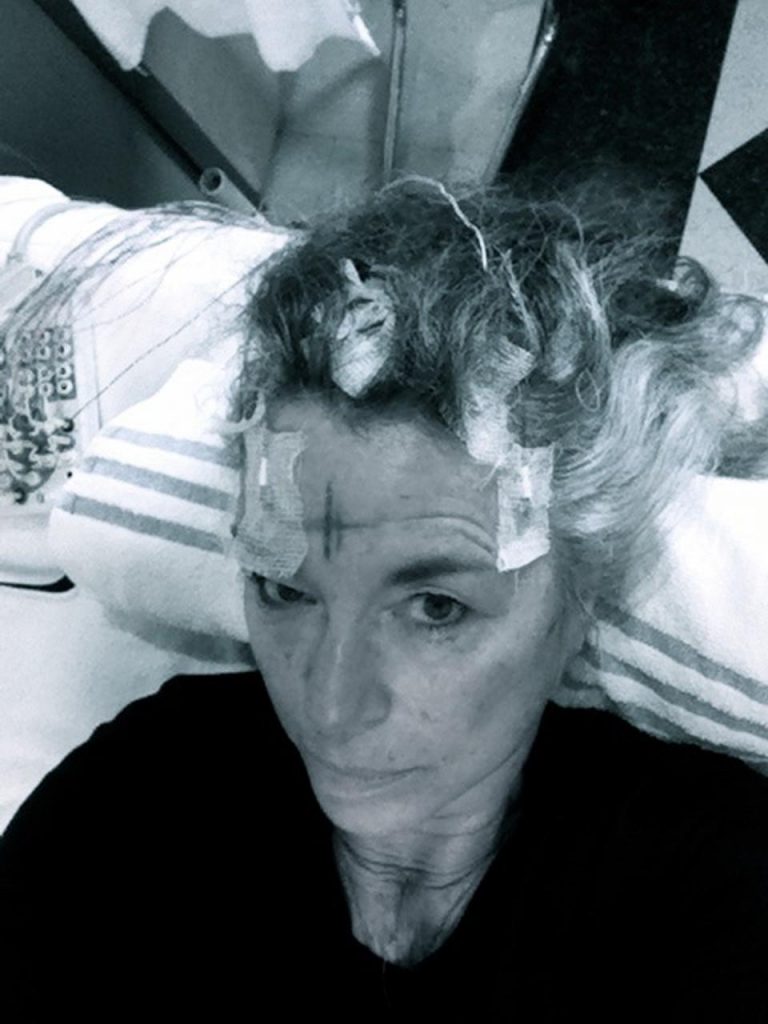November is Epilepsy Awareness Month. I have had epilepsy for virtually all my life, so I have a bit to say about it. Though anyone can do a search and find out the medical definition, official stats and incidence rate — basically it is a complex and variable neurological disorder wherein too much electricity zaps the brain causing a seizure.
It is not simple or straightforward; there are many different kinds of seizures, depending upon what part of the brain is experiencing the electrical jolt. This determines what part and or function of the person’s body is affected. In my case, my entire brain is zapped, causing what is called a tonic-clonic generalized seizure. It is the dramatic, full-body experience that is usually what is depicted in movies and such. But there are many other sorts of seizures that are far less obvious.
What is less known or talked about is epilepsy’s history and its legacy. Epilepsy is the oldest recorded disease. Over the centuries it has been both deified and demonized. The ancient Greeks revered those who had the tonic-clonic seizures (convulsions). To be an Oracle of Delphi one had to have such seizures, as it was believed the convulsion was the result of the gods speaking through a mere mortal. It was a coveted position. Those mortals (all women) were revered and highly respected.
In medieval times, however, having a convulsion was understood to be the result of being possessed by the Devil, capital “D.” People were jailed, dunked in deep wells, sometimes tortured and often ostracized. Unfortunately it is this legacy that fuels the stigma attached to epilepsy even to this day. When I was growing up many people had the mistaken idea that epilepsy meant you must also be mentally disadvantaged —“retarded” was the word used. I am not making this up. Today unemployment and under-employment are the number one non-medical issues for those of us with epilepsy. An “invisible” disability that is unpredictable, many employers don’t want to deal with something they can’t see or predict and they don’t understand. I suspect that those lingering old wives’ tales taint perceptions. It is a major dynamic in why I became an entrepreneur.
I am one of the lucky ones. I don’t have seizures every day, like so many others, but very infrequently nowadays. Being adequately medicated has given me that gift of predictability and independence. Finding a suitable and effective anti-epileptic medication is not straight forward, but a process that can take years.
In my experience, having epilepsy has been both a blessing and a curse. Without question the disability functions as an on-going obstacle, but also as an opportunity to learn and adapt. When your everyday situation is always at risk of being brutally interrupted by a seizure, one becomes adept at fast re-organization, always having a contingency plan. This has taught me to be a creative problem solver—looking for ways around whatever challenge or obstacle presents itself. And even though my ability to see and consider many different courses of action can drive others crazy, it serves me well in entrepreneurial ventures.
While my version of epilepsy is well controlled these days, in the past I have had grand mal (French for ‘big sickness’) seizures while swimming in the ocean, in classrooms, taxi cabs, airports and offices. Through these experiences I have learned that generally people are good; total strangers have helped me, protected me and delivered me to emergency rooms. Never has anyone ever taken advantage of my vulnerability. They may be fearful, shocked — but not once has anyone caused me more harm.
Living with a constant but veiled threat is not fun. But it is very instructive. We all have obstacles and challenges in this life. The question is: how and what can we learn from them?

